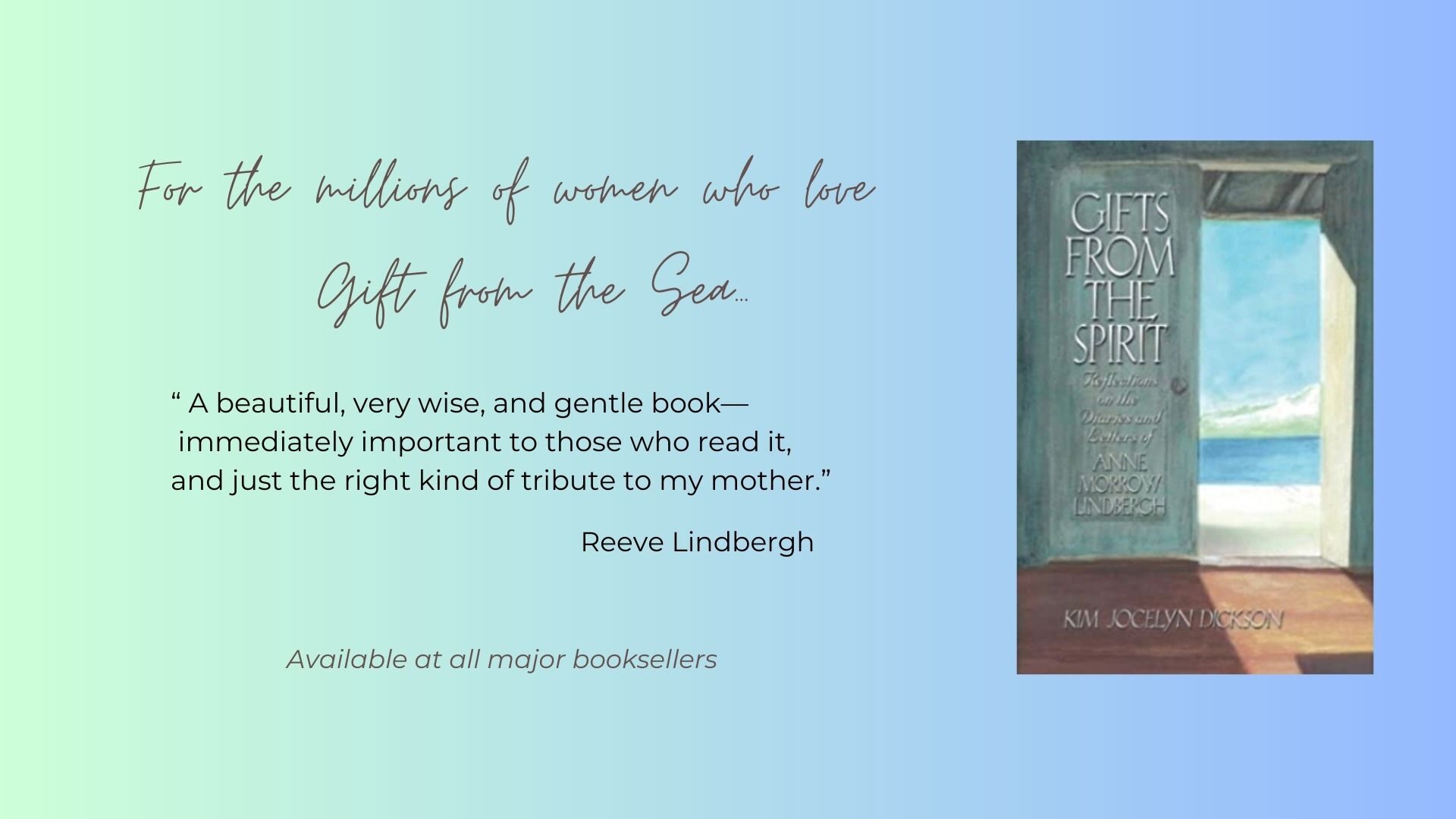Anne Morrow Lindbergh’s thoughts on love seem especially appropriate to be reminded of today.
“Love is a force in you that enables you to give other things. It is the motivating power. It enables you to give strength and power and freedom and peace to another person…It is a power like money or steam or electricity. It is valueless unless you can give something else by means of it.”
Anne Morrow Lindbergh, LOCKED ROOMS AND OPEN DOORS, p. 231
Anne’s thought on what love really is came on the heels of a stimulating conversation she had with Margot Loines, the woman who would later marry her brother. Even as a young woman Anne began to understand that love is not an entity that you can give: “…like an armful of flowers. And a lot of people give love like that–just dump it down on you, a useless strong-scented burden.” [i] Rather, it is a power, a flow that energizes you to give other things out of it.
I think this is profoundly true. More and more I see that love is not this thing that I possess, that I hand over like I would a Hallmark card. It is something I am inside of, that I give out of. Instead of “I give you my love,” it’s “All that I do toward you comes out of this force inside me.”
It reminds me of Anne’s metaphor for God as the stream of compassion. When I am “in the stream,” I love. All that I am, all that I do comes out of this place that flows through me. When I live out of this place, I can be a channel for love to flow through.
To be in the stream of compassion–to love–begins with me. I have to be present to myself, honest with myself, and compassionate and merciful to myself to open the door. And then I am free to love. The presence, honesty, and compassion that I give myself, I can give to another. It enables me to really see another person, empower them to be themselves, and to want the best for them. It doesn’t feel hard to do this; it’s not a burden or a sacrifice. It feels natural, as if it comes out of a flow inside me. It is a power, like money or steam or electricity. It’s not sentimental and it’s not always pretty. But it wants good and power and strength for the other.
I’ve experienced the difference between what it’s like to live out of this place and not live out of this place most dramatically in my teaching life. I’ve taught elementary school students off and on for many years. It is one of the hardest jobs you can imagine. If you’ve ever planned and carried off a children’s birthday party, think about doing that five days a week for six hours a day–only the activities you plan have to be meaningful and educational, keep the students involved, and get them ready for life. Not only that, children bring their emotional lives into the classroom and generally sit them right out there on their desks. Hel-lo! Here I am. They don’t have the ability to hide their emotional lives as adults do, so you’re dealing with that as well. It’s exhausting.
I used to experience the responsibility of all this as crushing. I felt the weight of all of it–it felt like it was up to me to carry and solve all the problems and make everyone and everything okay.
It doesn’t feel that way anymore.
As I get more in touch with myself and my inner life, my ability to discern what I am responsible for becomes clearer. I can’t solve everyone’s problems and fix everyone. I don’t have that kind of power. No one does. Letting go of unrealistic expectations of myself frees good will to flow unencumbered. As I’ve grown to be more compassionate toward myself, I become naturally more compassionate toward others. It doesn’t require effort. It just happens.
I’ve noticed a subtle yet noticeable difference in the way I teach. I’m better able to connect with my students when I’m connected with myself. I’m freer to share my real feelings with them. If I’m proud of them or pleased with them, I let them know. If they annoy me or make me angry, I let them know that, too. There’s an honesty and good will that flows between us and I know it’s because I’m more aware of myself than I’ve ever been. At the end of the year I’m always amazed and touched by the kinds of cards and notes they write me. They’re full of love toward me and gratitude for all they’ve learned–and it’s because they have felt loved and respected by me. The stream of compassion has flowed through our classroom. It hasn’t been something I’ve had to reach for or will to happen. It’s felt organic.
And so I find Anne’s ideas about love and the stream of compassion to be true. When we are in touch with ourselves and merciful to ourselves, we open ourselves to dwelling in a flow of energy that is greater than we are. “Love your neighbor as yourself” is more than a commandment; it’s really the only way that can even happen.
[i] Anne Morrow Lindbergh, Locked Rooms and Open Doors (New York, Harcourt, Brace, Jovanovich, 1974) p. 231.
(Excerpt from Gifts from the Spirit: Reflections on the Diaries and Letters of Anne Morrow Lindbergh, 2002, 2014, copyright Kim Jocelyn Dickson)
